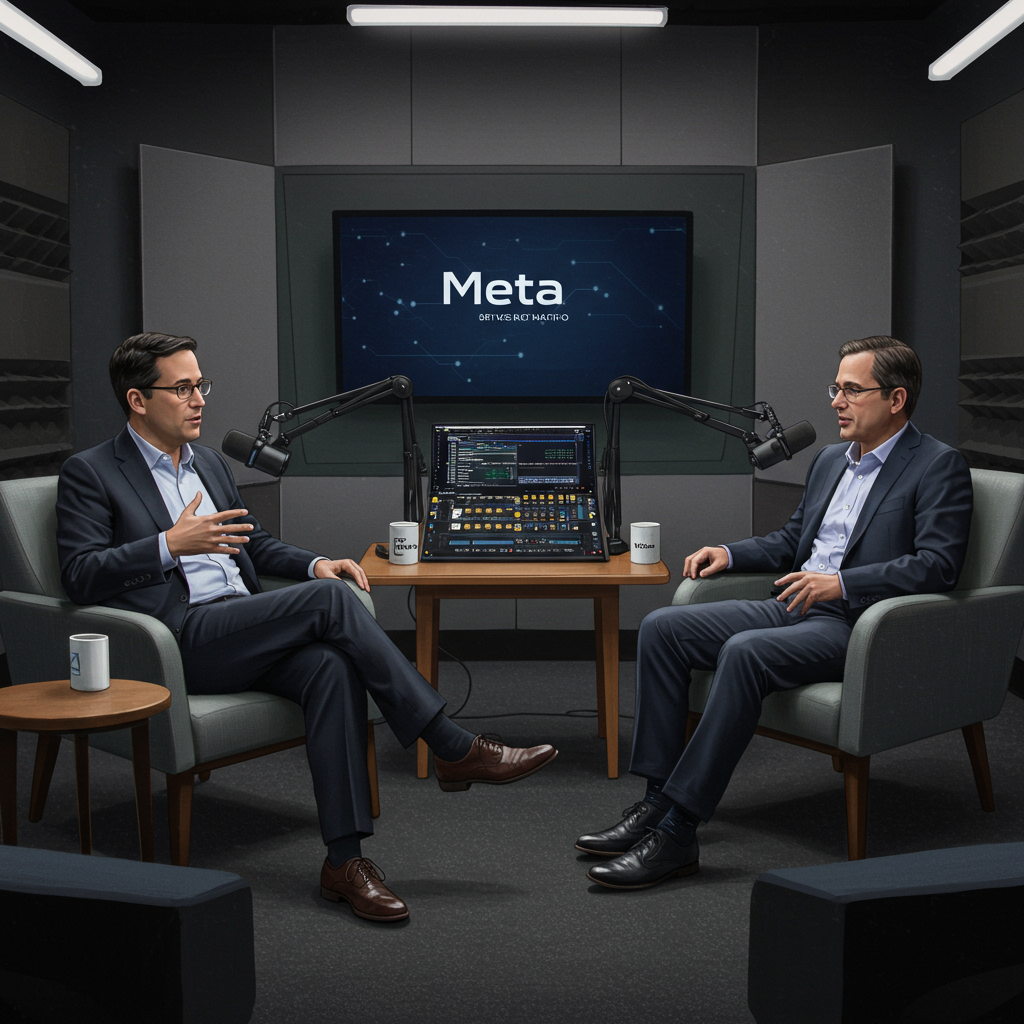The battle for elite artificial intelligence talent is heating up, with OpenAI CEO Sam Altman revealing that rival tech giant Meta has been making “giant offers,” including signing bonuses potentially exceeding $100 million, to lure away his employees.
Speaking on the “Uncapped” podcast hosted by his brother, Jack Altman, the OpenAI boss described Meta’s recruitment tactics as “crazy” due to the sheer scale of the financial incentives. These offers reportedly include not just massive upfront bonuses but also annual compensation packages potentially valued at over $100 million – a figure highlighted by reports suggesting it’s roughly five times the compensation package offered to football superstar Lionel Messi for joining Inter Miami.
Meta, the parent company of Facebook, Instagram, and WhatsApp, is aggressively expanding its AI capabilities. This drive is underscored by significant investments, including a recent $14.3 billion stake purchase in AI startup Scale AI. Meta CEO Mark Zuckerberg has also stated ambitious plans to invest at least $60 billion in AI this year.
Meta’s Broad Poaching Efforts
According to Altman, Meta’s offers have targeted “a lot of people” across the OpenAI team, specifically aiming for the “best people” involved in developing generative AI technologies like ChatGPT. While Altman claims Meta’s attempts have been “largely unsuccessful” so far at OpenAI, with none of their most valuable staff accepting the offers, external reports indicate Meta has also targeted researchers at Google DeepMind, achieving some success in recruiting talent from there. The founder of Scale AI, Alexander Wang, is also expected to join Meta to contribute to their AI initiatives, including efforts towards superintelligence.
Why OpenAI Talent Is Reportedly Staying
Despite the astronomical financial offers, Altman contends that OpenAI employees, particularly his top performers, are staying committed to the company. He attributes this retention to what he describes as OpenAI’s “really special culture” and, crucially, its ambitious “mission” to create superintelligence – AI that vastly outperforms human cognitive abilities. Altman suggested that the future “economic awards and everything else flowing from that” mission are a stronger draw than Meta’s immediate financial guarantees.
OpenAI and other leading firms believe that artificial general intelligence (AGI), capable of performing at or above human levels, is imminent, making the pursuit of superintelligence the next frontier.
Altman’s Critique of Meta
While expressing respect for Meta in certain aspects, Altman didn’t hold back from critiquing the rival firm. He voiced skepticism about Meta’s innovation capabilities, stating, “I don’t think they’re a company that’s, like, great at innovation.” He also implied that Meta’s recruitment approach, heavily relying on huge upfront compensation, might not foster a “great culture,” contrasting it with OpenAI’s mission-driven environment. Altman explicitly stated his belief that OpenAI has a “much better shot at delivering on superintelligence” compared to Meta.
The High-Stakes AI Talent War
Industry analysts corroborate the intensity of the competition for top AI talent. Principal analyst at Forrester, Indranil Bandyopadhyay, notes that the colossal figures offered reflect a widespread belief in the tech industry that a select group of elite researchers and engineers can provide a “decisive competitive advantage.”
With investment in AI reaching extraordinary levels – exemplified by massive infrastructure deals like OpenAI’s joint $500 billion plan for new US data centers – acquiring talent is viewed as a “high-risk, high-reward gamble.” Experts like Edward Keelan, partner at Octopus Ventures, emphasize that this top talent has the potential to “define the future of AI models and infrastructure,” making them incredibly valuable in this “AI gold rush” where talent is the “most precious and fiercely contested resource.” The substantial spending across R&D and infrastructure reflects a deep-seated belief that the world is on the cusp of a “transformative shift” driven by AI.
Altman’s candid remarks are the latest example of tech leaders publicly appraising their rivals, a trend often playing out on podcasts and reflecting the fierce competition and strong personalities dominating the AI and tech landscape.



